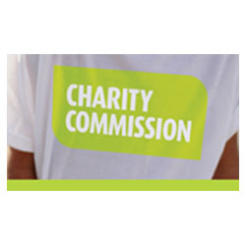The Charity Commission has updated its guidance on fundraising, spelling out trustees’ responsibilities to ensure fundraising is legal, ethical and profitable and outlining the self-regulation system in order to help maintain public trust and confidence.
Trustees are given additional extensive advice in the new guidance on what to consider when launching a fundraising campaign and how to decide on particular methods of raising money. The updated guidance, Charities and Fundraising, emphasises trustees’ obligation to consider the potential reputational and trust risks in using different fundraising messages and methods. In particular, trustees warned that certain practices, like using distressing images and direct mail enclosures including pens and umbrellas, are to be considered contentious or unethical.
“Although the charity may see a short-term gain to employing such methods, donors may feel that they are being unduly pressured into donating and develop a negative perception of the charity and charities generally. Trustees should be aware of potential issues and risk factors before agreeing to a method of fundraising that may be considered contentious. Charities should not use any methods of fundraising that may damage public trust and confidence in charities,” the guidance reads.
The Commission has also strengthened its position against chain letters, to now say that it “strongly discourages” the practice instead of the “generally discouraged” referred to in the previous guidance, last updated in part in April 2008.
Rosie Chapman, executive director for policy and effectiveness at the Charity Commission, said that trustees need to be made aware of good practice and their legal responsibilities in relation to fundraising in order to ensure public trust and confidence in the sector.
Complaints procedures and self-regulation are also addressed in full in the updated guidance, with the Charity Commission clarifying that it does not deal with fundraising complaints unless they pose a significant risk to the charity, directing complaints instead to charities and the Fundraising Standards Board.
Trustees advised on contentious fundraising methods in updated Charity Commission guidance
The Charity Commission has updated its guidance on fundraising, spelling out trustees’ responsibilities to ensure fundraising is legal, ethical and profitable and outlining the self-regulation system in order to help maintain public trust and confidence in charities.









